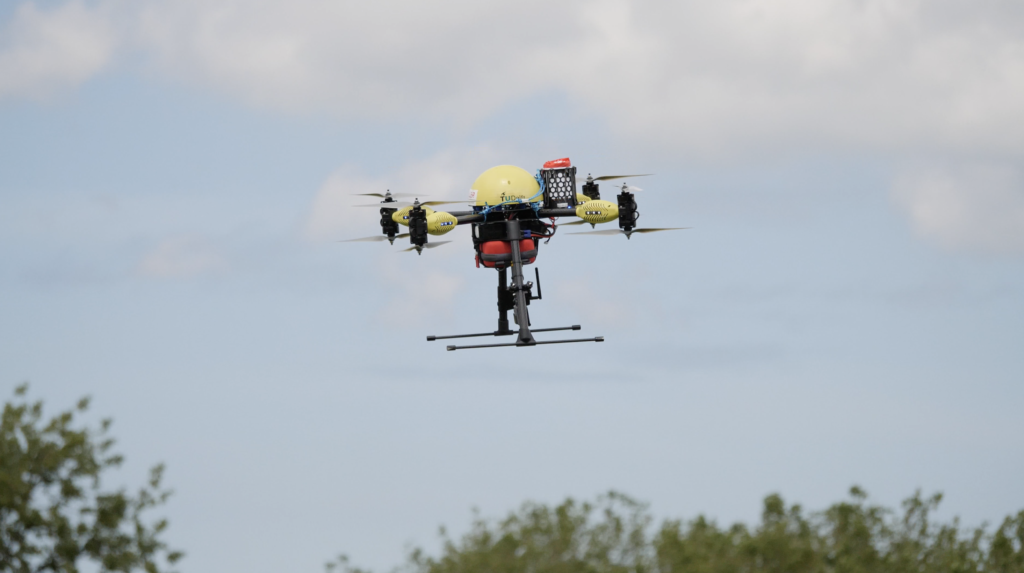Fully autonomous drones safely made way for the high priority drones above TU Delft campus.
About VUTURA
VUTURA (Validation of U-space by Tests in Urban and Rural Areas) is a SESAR CEF project supporting U-space, the European vision for the safe, secure and efficient handling of drone traffic and a key enabler for the growing drone market to generate economic and societal benefits.
VUTURA has four major goals:
- Validate the use of shared airspace between existing airspace users (manned aviation) and drones;
- Validate that more than one U-space Service Provider (USP) can provide U-space services in a specific airspace, and the procedures to manage the drone flights, including the involvement of Air Traffic Control (ATC);
- Ensure that the developments within SESAR and the services of commercial USPs are aligned and contribute to proposals for aligning these (if needed) and for regulation and standardization;
- Increase the pace by which European cities and companies exploit emerging technologies related to drones. This will improve quality of life in cities, create concrete socio-economic outcomes, and help European companies to take a leading position in the new smart city market.

Demonstration above the TU Delft campus
Demonstrations were performed with 5 drones above the TUDelft Campus by the MAVLab of TUDelft, a VUTURA consortium partner testing the technical and economic viability of commercial drone flights. This included drone flights beyond visual line of sight (BVLOS) in an urban environment and integration with Air Traffic Control of Rotterdam airport.
To execute this, a common U-space framework was required, allowing multiple U-space service providers to support the safe integration of drones into a shared airspace. The VUTURA demonstrations even showcased 2 fully autonomous drones avoiding each other base on the U-space air traffic data.
This scenario featured a medical drone carrying a defibrillator, on its way to an emergency scene. A mapping drone in the vicinity then had to make way for the medical drone to safely pass through the airspace without conflict. The interoperable systems provided by the U-space service providers facilitated the drone traffic de-confliction. The demonstrations were carried out in close cooperation with the civil aviation authorities.
Outlook
As drone traffic increases daily, the work done by VUTURA was vital in proving that (commercial) drone traffic can safely co-exist with traditional air traffic in different kinds of environments. Furthermore, it was demonstrated that the technology to safely manage drone traffic is feasible, scalable and interoperable. This ensures a framework that can guarantee the safety, privacy, and security of everyone involved.
